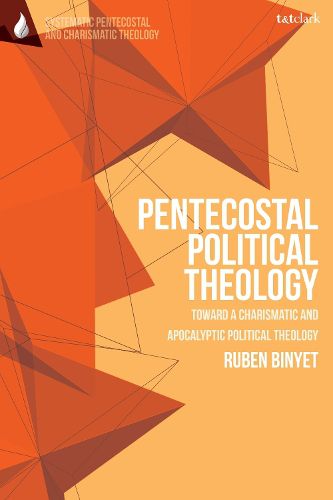Readings Newsletter
Become a Readings Member to make your shopping experience even easier.
Sign in or sign up for free!
You’re not far away from qualifying for FREE standard shipping within Australia
You’ve qualified for FREE standard shipping within Australia
The cart is loading…






A healthy and fruitful political theology is essential for the future of Pentecostal and Charismatic movements worldwide. This book offers crucial reflections on how to develop this area of theology.
First, Binyat presents a central debate in political theology: the rift between neo-traditional and liberal Augustinianism. This debate helps situating the emerging voices of Pentecostal and Charismatic scholarship within the field of political theology, revealing the diversity, creativity, and significant potential of Pentecostal and Charismatic approaches to politics.
Second, this incisive work provides a constructive proposal for the development of Pentecostal and Charismatic political theology. It examines the implicit political dimensions of Pentecostal and Charismatic imagination and spirituality. This analysis is grounded in the underlying conviction that Pentecostal and Charismatic spirituality is inherently political, and that political theology should begin with the ecclesial practices of Pentecostalism. Binyat advocates for a critical yet radical embrace of Pentecostal and Charismatic spirituality, particularly its charismatic and apocalyptic dimensions, as a means to engage fruitfully with the political realm.
$9.00 standard shipping within Australia
FREE standard shipping within Australia for orders over $100.00
Express & International shipping calculated at checkout
Stock availability can be subject to change without notice. We recommend calling the shop or contacting our online team to check availability of low stock items. Please see our Shopping Online page for more details.
A healthy and fruitful political theology is essential for the future of Pentecostal and Charismatic movements worldwide. This book offers crucial reflections on how to develop this area of theology.
First, Binyat presents a central debate in political theology: the rift between neo-traditional and liberal Augustinianism. This debate helps situating the emerging voices of Pentecostal and Charismatic scholarship within the field of political theology, revealing the diversity, creativity, and significant potential of Pentecostal and Charismatic approaches to politics.
Second, this incisive work provides a constructive proposal for the development of Pentecostal and Charismatic political theology. It examines the implicit political dimensions of Pentecostal and Charismatic imagination and spirituality. This analysis is grounded in the underlying conviction that Pentecostal and Charismatic spirituality is inherently political, and that political theology should begin with the ecclesial practices of Pentecostalism. Binyat advocates for a critical yet radical embrace of Pentecostal and Charismatic spirituality, particularly its charismatic and apocalyptic dimensions, as a means to engage fruitfully with the political realm.